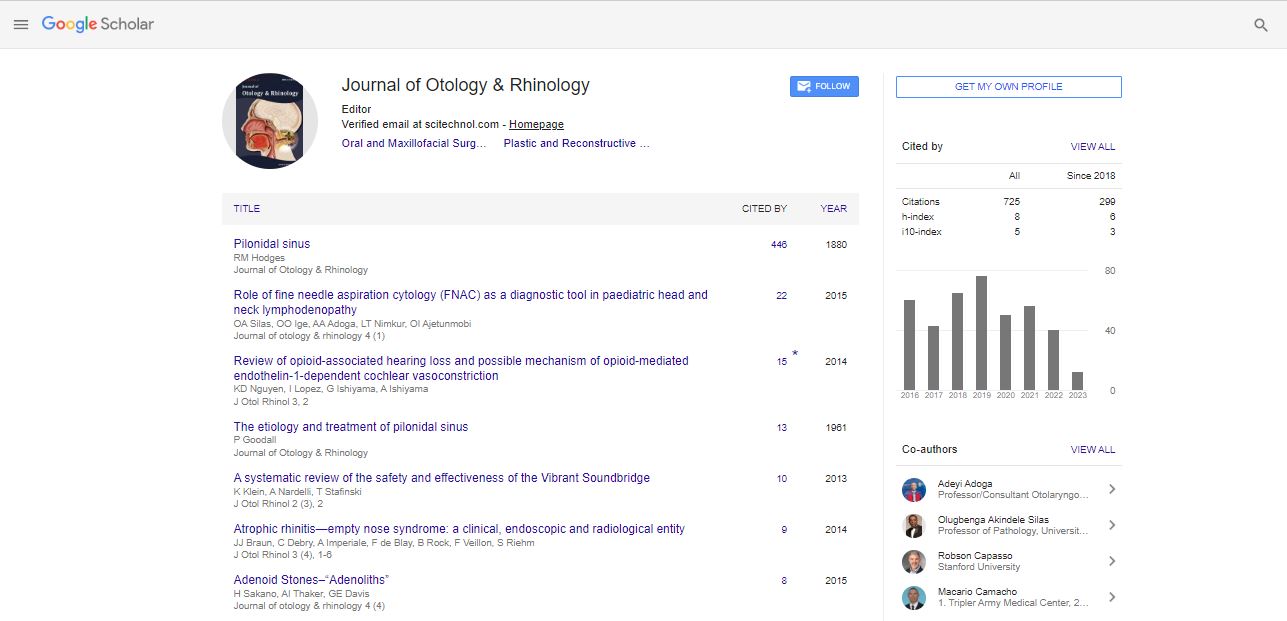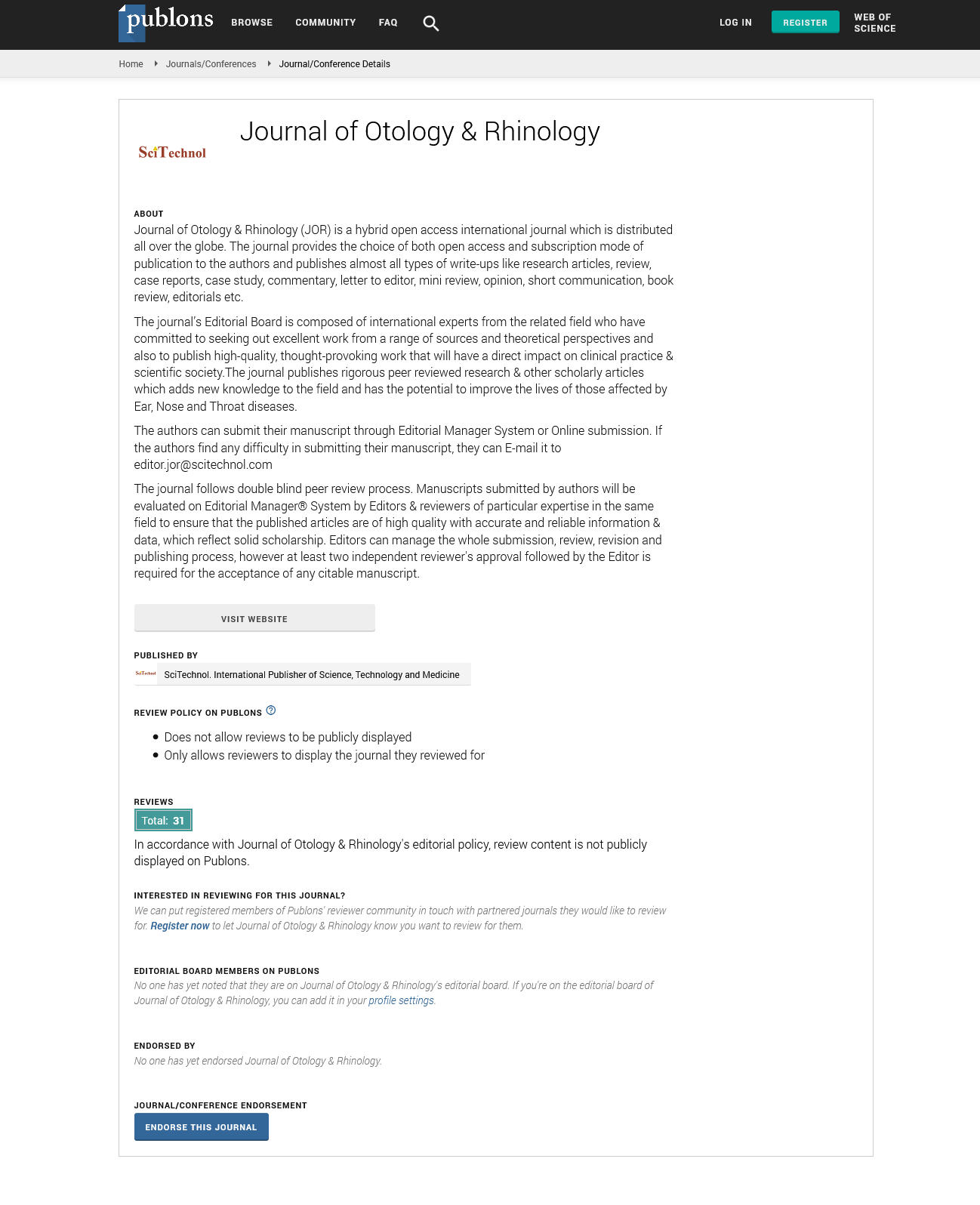Logistic regression, discriminant analysis and artificial neural networks for sinus surgery outcome prediction
Pawel Strek, Joanna Szaleniec, Katarzyna Wieswzczek and Aleksandra Boron
Jagiellonian University, Poland
:
Abstract
Introduction: Endoscopic sinus surgery (ESS) is an effective treatment method for most patients with chronic rhinosinusitis (CRS) that cannot be controlled by medical therapy. Only 10-20% of patients do not benefit from surgery. There are many clinical predictors of poor outcome. A multifactorial model is necessary to calculate an individual's risk of failure. Aim: Three different methods of ESS outcome prediction were compared in order to select the most robust type of prognostic model for further research. Materials & Methods: 140 patients who underwent sinus surgery were enrolled in the study. The patients were evaluated before surgery and 3-6 months after surgery. The data routinely collected before surgery was used as independent variables for the predictive models. Expected ESS outcome was defined as symptomatic improvement. Logistic regression, discriminant analysis and artificial neural networks were used to build predictive models. The analyses were conducted in Statistica 7 and 12 (StatSoft). Results: The best logistic regression models produced 88% correct predictions. Discriminant analysis provided 86% correct predictions. However, both methods tended to predict too many positive results of surgery and for the patients who did not improve after ESS the number of false predictions was very high (up to 65%). The best neural model provided 94% correct predictions and there was only one case of false classification in the group of patients without improvement after ESS. Conclusions: The artificial neural networks were shown to be a more effective tool for ESS outcome prediction than logistic regression and discriminant analysis.
Biography
Pawel Strek is a Specialist in Laryngology. He is the Deputy Head of the Department of Otolaryngology Clinic. His research interests include Thyroid Cartilage and Laryngeal Cancer. He conducts a seminar on endoscopy in the field of Medicine. He owns a private laryngology office. In 1998, he completed his Habilitation Doctor Degree on “Optimization of application of the surgical partial removal of larynx due to the tumor of the primary location on eppiglottidean level”. Since 2010, he has been Professor at Jagiellonian University Medical College.
Email: pawelstrek@tlen.pl
 Spanish
Spanish  Chinese
Chinese  Russian
Russian  German
German  French
French  Japanese
Japanese  Portuguese
Portuguese  Hindi
Hindi 


